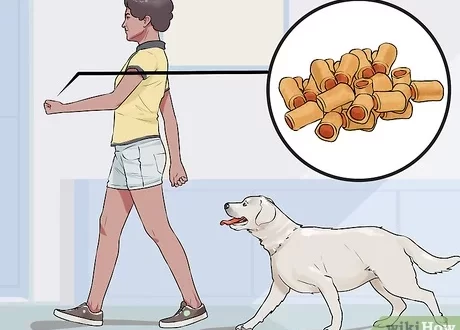
Can a dog catch a cold or get the flu?
It’s that time of the year when a slight runny nose quickly develops into sneezing, and a sore throat turns into an incessant cough. You are ready to do anything to keep your family, including your puppy, healthy. Well, now you are probably wondering: “Can a dog catch a cold?”. And if you’re feeling unwell, the thought that your dog might catch the flu from a human, like you, will make you even more nervous. Of course, you love your pet and want him to be healthy, but should you have less contact with your pet, isolate him from you until you get better? This article is about whether a puppy can get a cold or the flu from a human, and what you can do to keep it from getting sick.
Contents
Like any other concerned pet owner, as you read and hear about the coronavirus infection, you must have thought about the risk of transmission from you to your pet and vice versa. There is currently no evidence that dogs are cats. As the COVID-19 situation continues to evolve, it is important to stay tuned and follow the recommendations of the World Health Organization (WHO), the Federal Service for Surveillance on Consumer Rights Protection (Rospotrebnadzor) and other international and national health organizations.
To date, there is no evidence that dogs, cats, or other pets can get COVID-19. The World Small Animal Veterinary Association (WSAVA) has published on its official website a very useful, regularly updated document, available in Russian, which will help you understand the situation and provide answers to specific questions.
Should you be concerned if your dog is coughing?
If your puppy or your dog is coughing, has a fever, and looks lethargic, then you have all the symptoms that are diagnosed in people with COVID-19. Please contact your veterinarian immediately, as many other diseases cause similar symptoms in pets: kennel cough, incl. canine parainfluenza, tracheal collapse, heart failure, bronchitis, pneumonia, and cardiac form of heartworm. And these are just some of them! Some of these diseases may be caused by other viruses that have nothing to do with COVID-19 infection, and according to the Centers for Disease Control and Prevention (CDC), there is no information on the transmission of canine influenza virus to humans. .
Can a dog catch a cold from a human?
Apchi! Are you sneezing? Do you have a stuffy nose or a sore throat? In humans, a cold usually occurs after contact with a person infected with a virus (doctors call it SARS – acute respiratory viral infection). Other symptoms besides sneezing are a sore throat or stuffy nose, as well as watery eyes and excess mucus in the nose and throat.
So, can a dog “catch” a cold from you? Great news: if you’re sick and your puppy wants to lick or hug you to cheer you up, don’t chase him away. As a rule, ARVI and many bacterial infections are species-specific, i.e. they can only affect certain types of animals or only humans, which is why you should not worry that you can infect your pet with a common cold. According to the PetMD portal (the largest international information portal about pet health, whose materials are approved by veterinarians), the common cold is not transmitted to animals from humans.
Can a dog catch a cold from another dog? Unfortunately, the answer to this question is “Yes”. Just because an animal doesn’t get SARS from humans doesn’t mean your puppy can’t get it from another dog that sneezes.
In general, many of your dog’s symptoms of infection will be similar to those of a human. So, according to PetMD, the types of viruses that infect humans and dogs are different, while the symptoms are basically the same: sneezing, coughing, runny or stuffy nose, and watery eyes.
There are many viruses that dogs can transmit to each other. Let’s take a look at one of the more common types of dog colds.
Kennel cough
Kennel cough is a group of dangerous, easily transmitted diseases of the respiratory system to other dogs, which a pet can “catch” in a place where other dogs congregate, for example, at dog shows or training classes. The bad news is that your dog doesn’t even have to come into direct contact with an infected dog. Viruses can be found on a variety of shared items, such as water bowls or toys that have been contaminated with the saliva of a sick dog. According to Vetstreet (a web-based information portal for better pet health software for owners and veterinarians, approved by veterinarians), a loud, frequent, dry, goose-like cough is the most common sign of kennel cough. Infected dogs vomit and choke, as if something is in their throat and they are trying to get rid of it. Dogs infected with kennel cough usually have symptoms for four to ten days. Treatment, which can only be prescribed by a veterinarian after examining the animal, depends on the course and severity of the disease and may include monitoring and improving conditions of detention, as well as taking antibiotics and other drugs.
Can dogs get the flu from humans?
The symptoms of the flu in humans are similar to those of the common cold, but if your body aches and your temperature rises sharply, then chances are that it is a more serious illness – the flu. The flu virus is passed from one person to another, so try to cover your cough or sneeze and other personal hygiene measures.
According to the Ministry of Health of the Russian Federation, unlike other SARS, which pass quite quickly, the flu lasts longer and can lead to serious complications, such as pneumonia. You will probably be happy to know that, just like with the common cold, your dog cannot catch the flu virus from you or other people.
However, you should be aware that there is also a species-specific influenza virus that infects dogs.
canine flu
Canine flu is a respiratory viral infection, just like a human disease. According to the American Veterinary Medical Association (AVMA), the first to be discovered and isolated from dogs in the United States in 2004 was influenza A virus strain H3N8. And already in 2015, an outbreak of canine flu that occurred in Chicago was caused by another strain of the virus – H3N2.
Canine flu symptoms are similar to flu symptoms in humans. The dog may develop a persistent cough that usually lasts ten to thirty days. She may sneeze, she may have a fever, and there may be copious discharge from her eyes and nose.
Treatment, which can only be prescribed by a veterinarian after examining the animal, depends on the course and severity of the disease and may include monitoring and improving conditions of detention, as well as taking antibiotics and other drugs.
Please note that steps must be taken to ensure that your other animals do not become infected. The AVMA warns: “Dogs infected with the canine influenza virus must be isolated to avoid infecting other dogs and, if infected with the H3N2 strain, cats.”
Going to the veterinarian
Naturally, you want to protect your dog, just as you want to protect your children. However, if your puppy is sick, he may need qualified help. Remember that taking care of a sick dog is like taking care of a sick child.
First of all, if you suspect that your dog is sick, no matter what, seek the advice of a veterinarian. Remember that only a veterinarian can prescribe the correct treatment after examining and diagnosing the condition of the animal.
One of the recommendations that you are likely to hear is to provide a pet with peace and comfort. Rest is vital for a puppy to recover. Perhaps there will be no problems with this, since when a dog is sick, it is not up to games, but this should be taken into account by all households and, especially, children. Until she gets better, she won’t want to play or go for walks. Fortunately, since the virus is not transmitted from dogs to humans, you can give your pet all the love and care they need so they feel you are there to help them get well.
It is especially important to provide a sick pet with enough fluids. Make sure that his bowl always has fresh, clean water, and often offer him a drink.
If your dog spends time in a dog hotel, or if he needs to eat with other animals in the near future, talk to your veterinarian to make sure your pet is healthy enough to be around other dogs. After all, you don’t want a sick animal to intentionally come into contact with your healthy dog, so care must be taken to ensure that your sick puppy does not come into contact with other animals. This also applies to the ban on visiting specialized dog walking areas. A little rest, rest, a healthy diet, plenty of fluids, and perhaps some medication prescribed by a veterinarian is what it takes for your pet to be healthy again and full of energy to play and delight you and your family.





